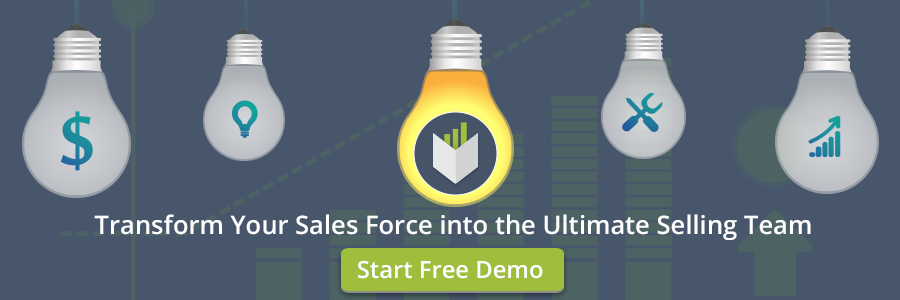“People hate getting sold to…but they love to buy.” Heard that one before? It’s repeated often enough. 1 out of 9 people are salespeople, and even some of them agree with this well-known adage. You would think, though, that if people truly hated getting sold to, there would be fewer salespeople. But unlike other roles that have atrophied and been replaced with technological advances, sales is almost as big as it was 40 years ago.
Do people really hate being sold to? Consider all of the ways that we’re sold to that we might forget, even for a moment, that people are selling us things:
- When Amazon offers a discount for bundling an item already in your care with a similar item
- When Salesforce emails you about how you can use a new feature they just released
- When Google offers you help setting up your first AdWords campaign
Amazon doesn’t impose on your check-out process with a pop-up ad you can’t close suggesting a product that you don’t need. Salesforce isn’t emailing you to tell you about a feature they released years ago that you already use. Google doesn’t call you over and over after you’ve set up your account trying to get you to spend more and more for a campaign you don’t need.
What do people really mean when they say they hate being sold too? What they are really referring to is an experience that provides little or no value to them. They hate being sold to by the stereotype of the used car dealer: the one that follows them around, tells them about a car that they don’t need and hounds them until they sign even when they’re adamant that they’re just browsing. Nobody likes that; even car dealers hate that, since it makes their lives so much harder because that stereotype has put everyone on guard, even made them hostile toward people who are just doing their jobs.
And people are on guard. It takes 8 times to get a prospect to answer your call, and that’s in addition to the touches it takes after that call to get to a sale. But by taking a cue from Amazon, Google and Gap, B2B sales reps can separate themselves from the stereotype. Focus on the feature that make these companies’ sales tactics feel like they’re not even selling:
Be relevant to your customer
The best software vendors provide customers and prospects with the knowledge about features they know that customers are looking for, not irrelevant fluff no one asked for. Google’s representatives are prepared to answer questions about your specific ad campaign, whether it’s a local restaurant or an international B2B campaign.
Besides relevance, the common denominator among these companies is that they guide the buyer without pushing them. Instead of telling people what they want, they establish trust by anticipating what a customer wants and then supporting them to achieve that. The days of the modern buyer who goes into a sales meeting blind are long gone; buyers research and have an idea of what they want, and they don’t like the idea of someone telling them, “no, you actually want this.”
Your product might have a ton of awesome features, but if you don’t know why your customer should care, then you can’t help them see why they should care. When you talk to a customer, they know when you have both eyes on your quota and one ear turned toward them. Does a customer who forgets that you’re selling a product, who feels like both sets of eyes and ears are on them, whose previous research is built into the conversation instead of ignored have a good reason to hate that experience? People won’t shoot that messenger when that messenger helps them make money, save money or just do something that they couldn’t do before. That’s the perfect selling experience.



Comments are closed.